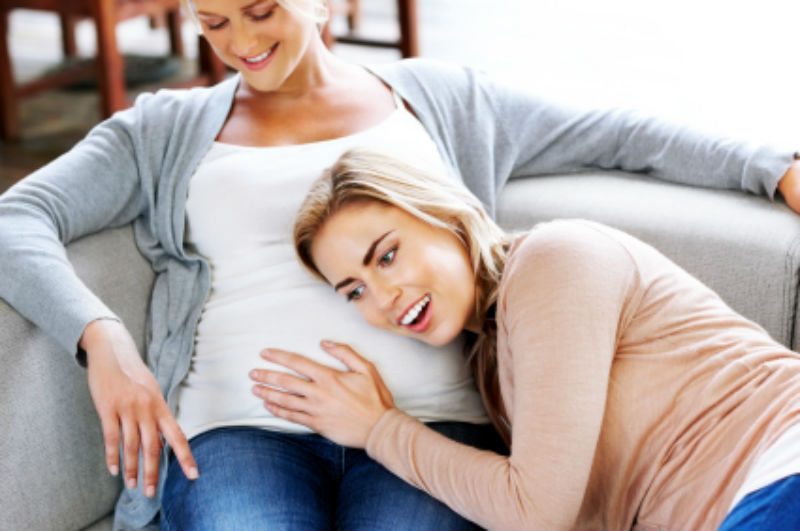SCOTUS rules in favor of adoptive mother in custody battle.
Antonin Scalia may be turning in his grave.
This is what the late justice warned against in 2003 in his dissent in Lawrence v. Texas, which struck down sodomy laws and legalized consensual same-sex sexual activity throughout the U.S. Scalia said the ruling would “normalize” same-sex relationships and the next step would be same-sex marriage and same-sex adoptions.
He was right.
On March 7, the U.S. Supreme Court (SCOTUS) overturned an Alabama Supreme Court ruling that said the state should not recognize a lesbian mother’s adoption of three children in Georgia.
The case, V.L. v. E.L. involves a lesbian couple who had been partnered for more than a decade and their three children, ages 12, 10 and 10, all born via alternative insemination to E.L. The couple never married. V.L. legally adopted the children in 2007 when the couple lived in Georgia. They subsequently moved to neighboring Alabama where they currently live with E.L.
V.L. raised the children from birth with her then-partner, E.L. and was an equal caregiver to the couple’s children. When the couple separated, E.L. refused to allow V.L. to see their children. V.L. took the case to court, but the Alabama State Supreme Court, notorious for anti-gay rulings, refused to grant even visitation rights to V.L., asserting that Georgia courts violated their own state laws when they approved the adoptions of the three children.
The Alabama court reasoned that because Georgia shouldn’t have allowed V.L. to adopt the children when they were born, she did not deserve custody or even visitation with them, despite the fact V.L. had been their parent as long as E.L.
E.L.’s lawyers argued that “the Georgia court had no authority under Georgia law to award such an adoption, which is therefore void and not entitled to full faith and credit.”
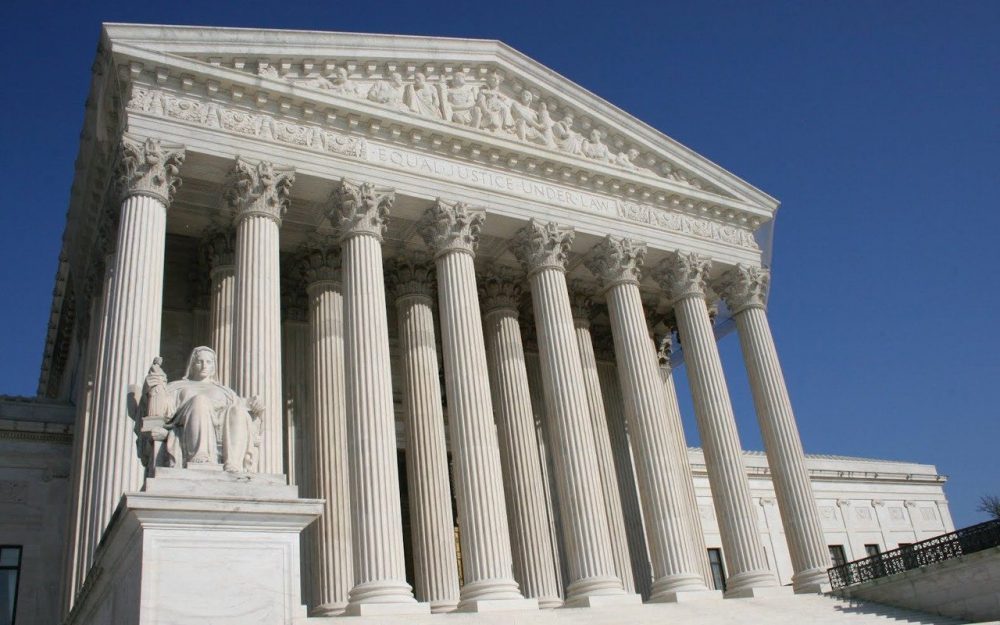
In its decision on March 7, SCOTUS overturned the decision without scheduling the case for oral arguments and a full briefing. The SCOTUS asserted that the Alabama Supreme Court’s decision deliberately side-stepped the well-established precedent that state courts must recognize legitimate rulings by courts in other states, in this case, Georgia.
In an unsigned ruling with no recorded dissents, which means the SCOTUS ruled more on precedent than on ideological splits, the SCOTUS wrote: “The Georgia judgment appears on its face to have been issued by a court with jurisdiction, and there is no established Georgia law to the contrary,” and “A state may not disregard the judgment of a sister state because it disagrees with the reasoning underlying the judgment or deems it to be wrong on the merits.”
The SCOTUS added, “It follows that the Alabama Supreme Court erred in refusing to grant that judgment full faith and credit.”
SCOTUS justices had already granted a stay request from V.L. in Nov. 2015 when she asked the SCOTUS for an emergency order permitting her to visit her children while her appeal was pending.
The National Center for Lesbian Rights (NCLR), which has been handling lesbian custody cases for well over a decade, filed the briefs for V.L. in that stay. In her request, V.L. NCLR stated that the Alabama Supreme Court’s decision was unprecedented.
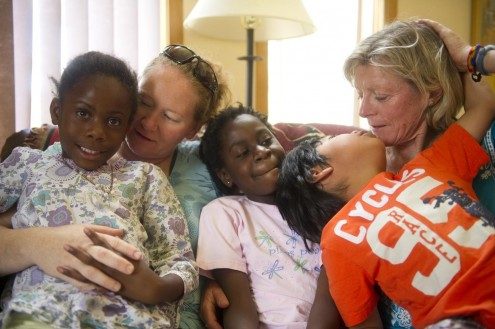
In proceeding to the SCOTUS, lawyers for V.L., including NCLR, which filed briefs for her in both Sept. and Nov. 2015, had argued that the Alabama decision violated the Constitution’s “full faith and credit” clause, which requires that states respect court judgments, including adoption orders, issued by courts in other states.
So when V.L. and E.L. moved from Georgia to Alabama, V.L.’s adoption of the couple’s children should have been valid in Alabama as it was in Georgia.
The case was first appealed to the Alabama Court of Civil Appeals. That court ruled in October 2014 that the Jefferson County judge (where the two women lived in Alabama) had erred when he granted V.L. visitation rights.
That appeals court reversed itself in February 2015. The case was then appealed to the Alabama Supreme Court. On Sept.18 the Alabama Supreme Court issued an order refusing to recognize V.L.’s Georgia adoption and declaring it void. The Alabama Supreme Court found that Alabama did not have to recognize adoption by V.L. of E.L.’s biological children.
At that time NCLR noted, “Before this ruling, no state supreme court has refused to recognize a same-sex parent’s adoption from another state–or any out-of-state adoption–based on a disagreement with how the court issuing the adoption interpreted its own adoption laws.”
In her brief before the SCOTUS, V.L.’s attorneys stated that the Alabama Supreme Court “flouts a century of precedent on the Full Faith and Credit Clause and will have a devastating impact on Alabama adoptive families. This Court’s review of the Alabama Supreme Court’s decision is urgently needed.”

In Nov., NCLR Family Law Director Cathy Sakimura said, “The Constitution requires every state to give full faith and credit to adoptions granted by courts in other states, regardless of whether it agrees with another state’s adoption policy or thinks the adoption was wrongly granted. “The Alabama Supreme Court had no legal ability to second-guess the Georgia court’s judgment. As a result of that serious constitutional violation, the children in this case have been wrongly separated from one of their parents, and the stability of adoption judgments across the country has been called into question. We are hopeful the Court will review this unprecedented decision and ensure that other states do not go down this dangerous and unlawful path.”
The Alabama Supreme Court, especially Chief Justice Roy Moore, has a disturbing history of discriminatory rulings against LGBT people, especially lesbians. Moore has previously ruled against lesbian mothers in custody cases. Moore’s opposition to same-sex marriage is of long-standing and hasn’t abated since the SCOTUS decision legalizing marriage equality in June 2015.
Over 20 years ago I reported on the case of Sharon Bottoms. Bottoms was raising her son with April Wade, her lesbian partner, when Sharon’s mother sued for custody of her grandson, citing her daughter’s “unnatural lifestyle.”
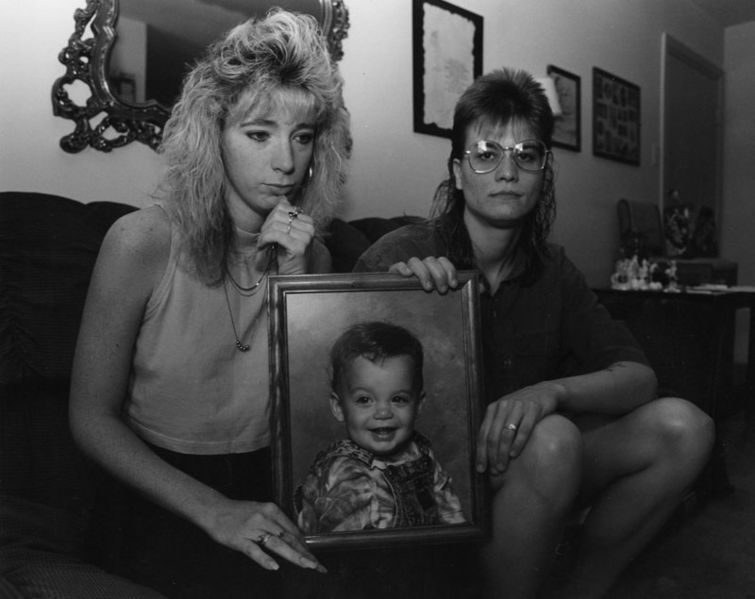
The Virginia trial judge awarded custody to the grandmother saying, “I will tell you first that the mother’s conduct is illegal. It is a Class 6 felony in the Commonwealth of Virginia. I will tell you that it is the opinion of this Court that her conduct is immoral. And it is the opinion of this Court that the conduct of Sharon Bottoms renders her an unfit parent.”
The legal precedent for years were the sodomy laws. But after Lawrence v. Texas, those laws no longer existed. Courts had to find other excuses for keeping lesbians from their children.
It wasn’t difficult: As lesbians began having children together without benefit of marriage and many jurisdictions did not allow non-biological parents to adopt these children, non-biological mothers were losing their children when their partners used homophobic laws against them.
Kate Kendell has been fighting these issues for the 20 years since she’s been Executive Director of NCLR. In case after case, Kendell has said the courts have not caught up with the reality of lesbian (and gay) parents.
A decade ago, and prior to the SCOTUS ruling on marriage, Kendell explained in a legal article, “Lesbian and gay parents also face more subtle forms of discrimination in child custody and visitation due to their inability to marry. In some states, for example, courts may prohibit divorced parents from living with an unmarried partner as a condition of custody or visitation. While this rule may appear neutral with regard to sexual orientation, it is not. As the Indiana Court of Appeals recognized in striking down a restriction of this type in a recent case, the practical effect of such a rule is to prohibit lesbian and gay parents ‘from ever being involved in a long term relationship that is the equivalent of marriage’.”
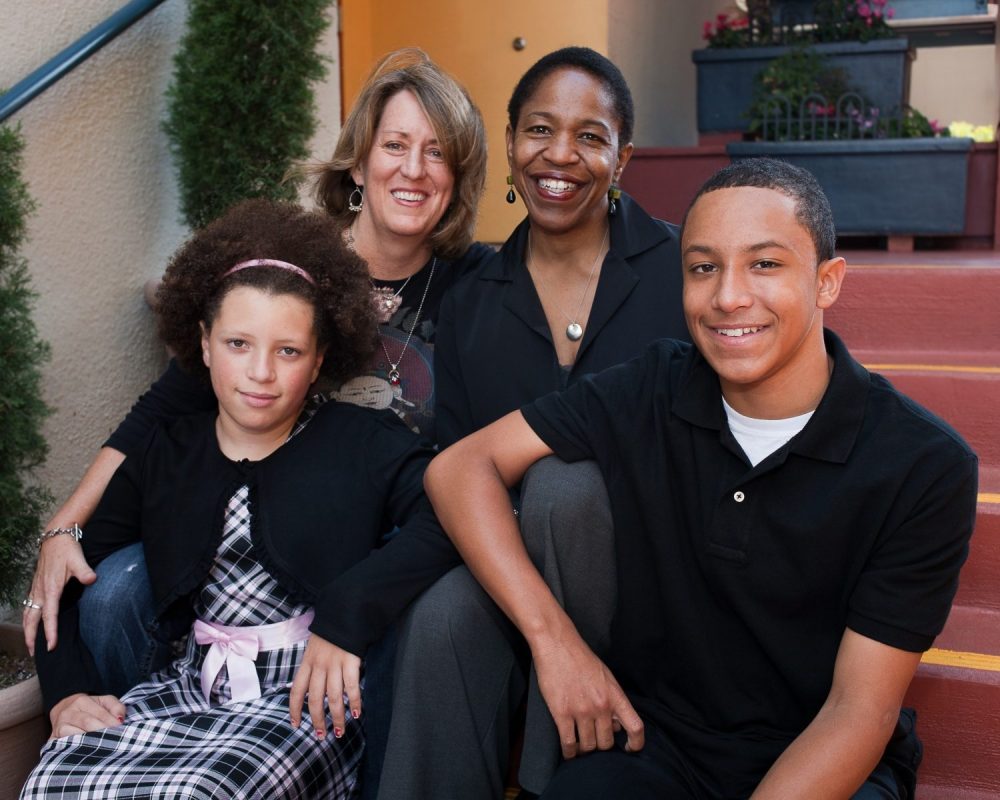
So for a lesbian like V.L., it might as well be 50 years ago and she might as well be “Carol.”
For more than 20 years I have been reporting on cases in which families have tried to wrench custody from lesbian mothers and cases where couples like V.L. and E.L. have separated and biological mothers have used homophobic court rulings to deprive non-biological mothers of custody when break-ups have turned ugly.
In October 2014, Christine and Janis, of Westchester County, N.Y., became embroiled in a court battle over the custody of the two children Christine gave birth to while the couple was together. Janis won visitation in July 2015, but it was limited to four hours a week, supervised.
When that case was decided, Chris Hwang, a lawyer with NCLR, said simply, “These are horrible cases on all fronts.”
In July a judge ruled that Janis, who is not a legal parent but who the court ruled was the family’s “breadwinner,” had the right to sue for visitation. Janis will be allowed to visit with the children every other Sunday for four hours while the court continues to hear arguments for permanent visitation rights. “I just can’t wait to hug and kiss my kids and not let go of them for four hours,” a tearful Janis told reporters outside the courtroom.
As more and more lesbian couples are raising children together, legal experts are starting to see more custody battles make it to court–if they can get a court to hear their case.
In Florida and California, courts have ruled that lesbian ex-partners should not have visitation rights with the children they helped raise, no matter the circumstances.
Other state courts have refused to hear such cases on the grounds that current laws do not apply to same-sex cases involving disputes over visitation rights. But, as the March 7 SCOTUS ruling indicated–and it is groundbreaking, if not necessarily precedent setting–courts are recognizing that lesbian families deserve legal consideration. A year before the SCOTUS marriage ruling, Massachusetts’ supreme court granted visitation rights to a lesbian who helped raise her ex-lover’s son, ruling that the woman was a “de facto” parent to the boy.
Groups like NCLR have said legalizing marriage won’t solve all the problems for lesbian parents, particularly those who were raising children together before the legalization of same-sex unions and then split up like V.L. and E.L.
Without the protections of marriage (which legally establish that any child born in the marriage is legally the child of both members of the couple, although this might still be challenged in the case of gay and lesbian parents) children of lesbian couples could still be in a legal quandary if the biological mother decides that she wants the other parent out of her and their children’s lives.

The notorious case of Miller v. Jenkins has been going on for a decade. Isabella Miller-Jenkins was born in April 2002 after Janet Jenkins and Lisa Miller decided to have a child together through alternative insemination.
The couple raised Isabella together for 18 months until Lisa took her and moved to Virginia.
At that time–Nov. 2003-Lisa filed a petition for dissolution of the couple’s civil union in the Family Court in Vermont. In the petition, Lisa agreed that the child was born of the civil union, and asked the court to award custody to her and visitation for Janet. Lisa also asked the court to order Janet to pay child support.
The Vermont court issued a temporary custody order giving primary custody to Lisa and allowing visitation for Janet. But Lisa fled the state and filed a new action in Virginia.
As in the V.L, case, the Virginia court found Lisa was the child’s sole parent and that Janet had no right to custody or visitation. The court cited Virginia’s “Marriage Affirmation Act,” which went into effect on July 1, 2004 and banned same-sex marriages or civil unions. Janet appealed the Circuit Court’s ruling to the Virginia Court of Appeals.
The Vermont court held Lisa in contempt for refusing to allow Janet visitation, and later held that Janet is a legal parent of the child. Lisa appealed that decision to the Vermont Supreme Court, which upheld the lower Vermont court’s ruling.
Unlike in the Alabama case, the Virginia court upheld the Vermont ruling. Lisa has been repeatedly held in contempt of court in Vermont and Virginia for failing to allow court-ordered visitation. In November 2009, the Vermont court ordered that custody of Isabella be transferred to Janet on January 1, 2010.
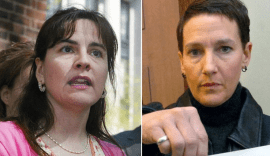
There are cases like this happening all over America. And while these cases languish in the courts, kids are growing up without their mothers and mothers are missing out on their children’s childhoods.
No one wants to be tied to an ex for the rest of their lives, especially after a difficult break up. But when women decide to co-parent, unless abuse is involved, that partnership–at least as co-parents–must be maintained for the sake of the children.
There are no easy remedies to these situations, but it’s difficult to imagine the pain and suffering of a mother being separated from her child, like V.L., like Sharon Bottoms, like Janet Jenkins.
For V.L., March 7 was one of the best days of her life. And for other women fighting the same battle to gain visitation and/or custody of their children, her win may become theirs.
